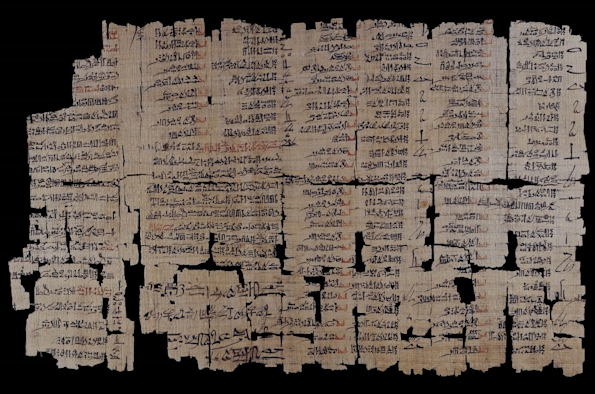
An Egyptian Science and Its Codification: Oneiromancy from the New Kingdom to Late Antiquity
- Dr Violaine Chauvet
- Suitable for: All are welcome.
- Admission: Free admission
Add this event to my calendar
Click on "Create a calendar file" and your browser will download a .ics file for this event.
Microsoft Outlook: Download the file, double-click it to open it in Outlook, then click on "Save & Close" to save it to your calendar. If that doesn't work go into Outlook, click on the File tab, then on Open & Export, then Open Calendar. Select your .ics file then click on "Save & Close".
Google Calendar: download the file, then go into your calendar. On the left where it says "Other calendars" click on the arrow icon and then click on Import calendar. Click on Browse and select the .ics file, then click on Import.
Apple Calendar: The file may open automatically with an option to save it to your calendar. If not, download the file, then you can either drag it to Calendar or import the file by going to File >Import > Import and choosing the .ics file.
Oneiromancy, or dream interpretation, is one of the divinatory arts with the longest history of attestation in ancient Egypt, from at least the Ramesside to the Roman Period. Regarded by the Egyptians as a science, this discipline is not only indirectly attested in official or daily-life documents, but also in specimens of the technical literature governing it: dream books. In these texts, thousands of dreams were described and interpreted as signs of events that were expected to befall the dreamer. Until recently, only a small number of dream books was available to scholars. Since 2010, increasing interest in divination has however led to the identification of additional specimens of dream books, significantly expanding the available corpus. With dream books known from the New Kingdom, the Late, and the Graeco-Roman Period, it is now possible to gauge both the continuity and the developments in the tradition of these manuals, including its twilight during Coptic Late Antiquity. Not only do these texts inform us about the theory and practice of oneiromancy, but they also offer material for the study of the contemporary society and psychology––for they include information on the way the ancient Egyptians categorized the world of dreams, as well as on the hopes and anxieties that they faced in their daily existence, and which are illustrated in the predictions interpreting each dream.
In order to foster discussion and questions from the audience, we have asked the speaker to recommend some preliminary readings to set up the research background for the talk.
- On the Ramesside dream book: . Szpakowska, ‘Dream Interpretation in the Ramesside Age’. In: M. Collier/S. Snape (eds., with the assistance of G. Criscenzo-Laycock/C. Price), Ramesside Studies in Honour of K.A. Kitchen, Bolton 2011: Rutherford Press: 509–517.
- On Late and Graeco-Roman (primarily demotic) dream books: L. Prada, ‘Classifying Dreams, Classifying the World: Ancient Egyptian Oneiromancy and Demotic Dream Books’. In: H. Abd El Gawad/N. Andrews/M. Correas-Amador/V. Tamorri/J. Taylor (eds.), Current Research in Egyptology 2011: Proceedings of the Twelfth Annual Symposium Which Took Place at Durham University, United Kingdom March 2011, Oxford/Oakville 2012: Oxbow Books: 167–177.
- On Egyptian dream interpretation in Late Antiquity: Oneirology versus Oneiromancy in Early Christian Egypt: Contextualising P. Duke inv. 244 (= Duke Coptic MS. 25)’. In: P. Buzi/A. Camplani/F. Contardi (eds.), Coptic Society, Literature and Religion from Late Antiquity to Modern Times: Proceedings of the Tenth International Congress of Coptic Studies, Rome, September 17th–22nd, 2012 and Plenary Reports of the Ninth International Congress of Coptic Studies, Cairo, September 15th–19th, 2008 (Orientalia Lovaniensia Analecta 247), vol. 2, Leuven/Paris/Bristol CT 2016: Peeters: 1221–1236.
[or contact vchauvet@liverpool.ac.uk for copy]
